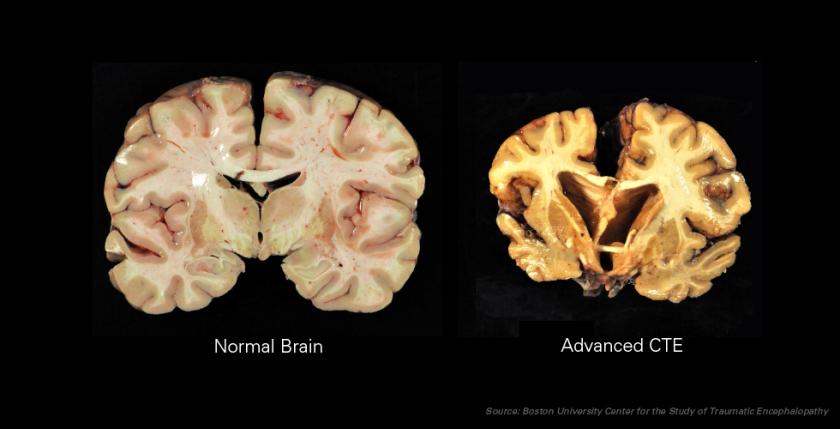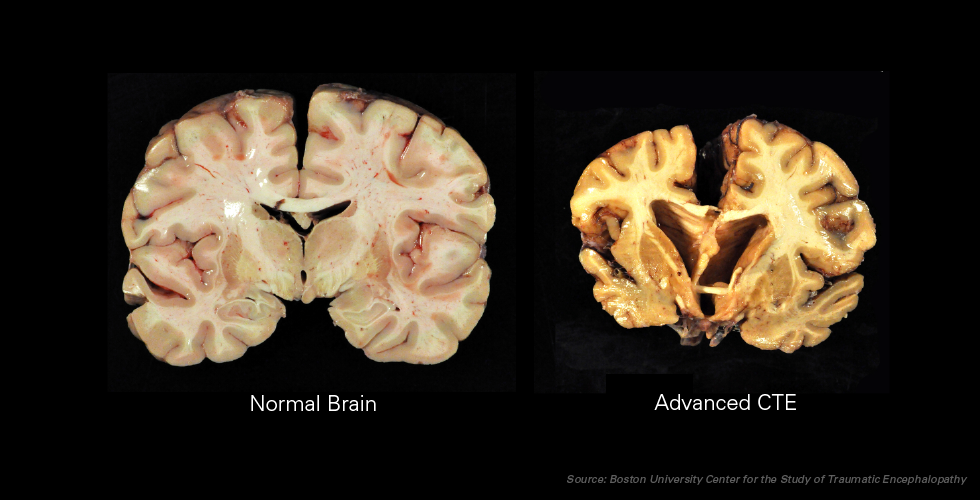CONTENT WARNING: Mention of Aaron Hernandez’s suicide
With September having come to an end, October brings along a great many things, including the Major League Baseball (MLB) Playoffs, the National Basketball Association (NBA) preseason—which began on Oct. 1—and season opener on Oct. 17, more football and hockey and of course, Halloween. From players’ protests across both the National Football League (NFL) and NBA, to Aaron Hernandez’s brain scans once again bringing C.T.E. to the forefront of football, the sports world has been rife with stories.

C.T.E. haunts the NFL without treatment
Aaron Hernandez, former New England Patriots player and convicted murderer, was found to have had a severe case of C.T.E.—equivalent to the damage found in elderly former NFL players—despite having left the NFL when he was only 23 and having committed suicide at 27.
Chronic traumatic encephalopathy (C.T.E.) is a significant degenerative brain disease believed to be caused by frequent and chronic head trauma found in over 100 former NFL players, including several who have committed suicide. Whether or not the condition was the cause or even influential upon Hernandez’s behavior before or after his trial and conviction, C.T.E. often manifests itself within those effected in symptoms such as difficulty controlling aggression and impulses, disorganization, mood swings, degrees of dementia and even more.
Hernandez’s brain scans prompted his estate to file a federal lawsuit against the NFL and the Patriots on Sept. 21, pursuing damages to provide compensation for Hernandez’s 4-year-old daughter, Avielle Hernandez, for the loss of her father. The lawsuit hinges upon the allegation that the NFL and Patriots knew about the possible consequences of frequent head trauma and did not provide enough protection to counter that threat.
The situation marks yet another mark along the NFL’s turbulence route in dealing with C.T.E.—or, more accurately, not dealing with C.T.E. According to a report from Democratic members of the House Committee on Energy and Commerce, the league rescinded a payment of $30 million to the National Institute of Health (NIH) for concussion research when it was realized that the study’s findings would damage the NFL’s image, backing out of a signed agreement to instead let taxpayers bear the bulk of the lost money.
Player protests from the NFL reach across to basketball
The NFL’s player protests against racial injustice, sparked last season by then-San Francisco 49ers quarterback Colin Kaepernick, have influenced Black athletes across the sports domain. Despite a rule founded decades ago establishing how kneeling during the national anthem is actually against the rules, several players have expressed a desire, or even plans, to demonstrate their symbolic unity during the national anthem.
Whether these demonstrations will arrive in the form of locked arms, raised fists, or the illegal kneeling—the enforcement against which has not been clearly defined by NBA Commissioner Adam Silver. While the league did distribute a memo on Sept. 29 reminding teams of the existence of the kneeling rule and the expectation of compliance, but Silver has repeatedly refused to establish whether or not a player or players who do kneel would be punished.
Regardless, teams across the NBA have expressed support for their players and their respective decisions in how they approach their demonstrations.
“I think ultimately, we as the Celtics organization support our guys and their right to take a stand and protest peacefully and promote positive change,” Boston Celtics Head Coach Brad Stevens said.
While the player protests across the NFL have slowed down over the past four weeks since the season opener’s dramatic league-wide displays and acts—Jerry Jones and the entirety of the Dallas Cowboys kneeling during the national anthem, locked arms with players, staff and security in Cleveland—the vast majority of teams across the league continue the effort.
U.S. President Donald Trump’s took to Twitter to air multiple opinions regarding the national anthem protests, tweeting “Very important that NFL players STAND tomorrow, and always, for the playing of our National Anthem,” on Sept. 30, also ironically claiming that the modern NFL is “too soft!” despite the rising caution behind the sport of football in general, with C.T.E. so frequently displaying its ever-present threat in a game with such frequent, traumatic contact.
Information gathered from theatlantic.com, nfl.com, and nytimes.com

